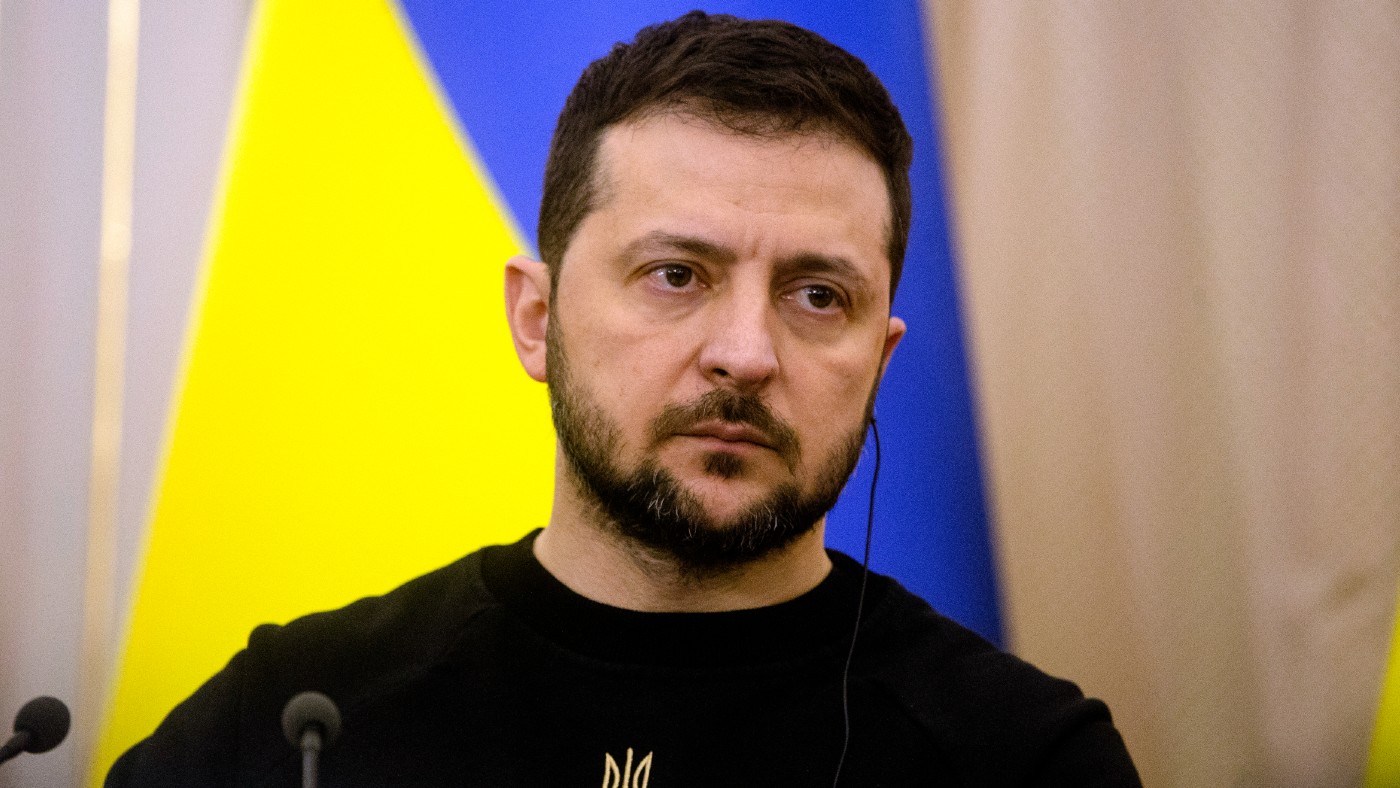A stink of corruption in Ukraine: the bad smell coming out of Kyiv
At least 12 senior officials have resigned or been sacked by President Zelenskyy in an anti-corruption drive

A free daily email with the biggest news stories of the day – and the best features from TheWeek.com
You are now subscribed
Your newsletter sign-up was successful
No one could say that Ukraine was some kind of ideal state before Russia launched its invasion last year, said Reinhard Veser in Frankfurter Allgemeine Zeitung. On the contrary, it was seen as one of Europe’s most corrupt countries, ruled by oligarchs and riddled with graft and corruption.
No surprise then that war with Russia seems to have thrown up glorious business opportunities for several politicians and civil servants. Yet the sheer scale of the graft scandal now engulfing the Ukrainian government is still pretty staggering, said Alisa Orlova in the Kyiv Post.
Zelenskyy’s shake-up
At least 12 senior officials have resigned or been sacked by President Zelenskyy in a sweeping shake-up of Ukraine’s wartime leadership, among them the deputy defence minister Vyacheslav Shapovalov, who quit over allegations that he’d overseen the purchase of food for the army at inflated prices; and Zelenskyy’s deputy, Kyrylo Tymoshenko, who, at a time of extreme austerity, was seen driving around Kyiv in a luxury Porsche.
The Week
Escape your echo chamber. Get the facts behind the news, plus analysis from multiple perspectives.

Sign up for The Week's Free Newsletters
From our morning news briefing to a weekly Good News Newsletter, get the best of The Week delivered directly to your inbox.
From our morning news briefing to a weekly Good News Newsletter, get the best of The Week delivered directly to your inbox.
Then there’s deputy infrastructure minister Vasyl Lozynskiy, who has been sacked after being arrested for allegedly taking a $400,000 kickback from a procurement tender for winter aid. Who said dodgy dealings were a thing of the past in Kyiv?
Some view this crackdown as a welcome effort by Zelenskyy to “clean house” and show that the “ostentatious lifestyle” enjoyed by corrupt officials won’t be tolerated in wartime Ukraine, said Oleg Sukhov in The Kyiv Independent. Others, however, are of the view that his reshuffle is more a product of political infighting than a genuine anti-corruption drive.
Why, for example, wasn’t Zelenskyy’s “notorious” deputy chief of staff, Oleh Tatarov, on the list of departing officials? After all, he was charged with bribery in 2020 – a case only dropped when prosecutors loyal to the president effectively nixed the investigation.
Clearly corruption is still a systemic problem in Ukraine, said Yulia Klymenko in Ukrainska Pravda (Kyiv). Procurement contracts seem deliberately confusing, accounting trails opaque. Until these faults are corrected, there’ll always be a gang of people with their noses in the trough.
A free daily email with the biggest news stories of the day – and the best features from TheWeek.com
‘Keeping officials under a magnifying glass’
There’s some good news in all this, said Yulia Lavryshyn on Zn.Ua (Kyiv). The war may have provided cover for crooks, but the slew of media revelations that has brought about the ousting of these officials shows that Ukraine’s free press is well capable of “keeping officials under a magnifying glass” even in the present dire circumstances.
Ordinary Ukrainians are understandably furious that graft remains so prevalent in their country, said Stefan Wolff and Tatyana Malyarenko on The Conversation (Melbourne). Ukraine’s economy is being battered by the war, and while these people are feasting on public funds most people are struggling to survive.
But few hold Zelenskyy responsible for the ongoing scandals: his approval ratings remain sky high and most people back him to make good on his prewar promises to root out wrongdoing. It’s imperative he does so. Last week’s welcome news that both Germany and the US will send tanks to Ukraine was “clearly linked” to Zelenskyy’s new anti-graft initiative. How well he manages to solve the corruption problems will determine the shape of Ukraine’s postwar future.
-
 How the FCC’s ‘equal time’ rule works
How the FCC’s ‘equal time’ rule worksIn the Spotlight The law is at the heart of the Colbert-CBS conflict
-
 What is the endgame in the DHS shutdown?
What is the endgame in the DHS shutdown?Today’s Big Question Democrats want to rein in ICE’s immigration crackdown
-
 ‘Poor time management isn’t just an inconvenience’
‘Poor time management isn’t just an inconvenience’Instant Opinion Opinion, comment and editorials of the day
-
 Corruption: The spy sheikh and the president
Corruption: The spy sheikh and the presidentFeature Trump is at the center of another scandal
-
 Putin’s shadow war
Putin’s shadow warFeature The Kremlin is waging a campaign of sabotage and subversion against Ukraine’s allies in the West
-
 The fall of the generals: China’s military purge
The fall of the generals: China’s military purgeIn the Spotlight Xi Jinping’s extraordinary removal of senior general proves that no-one is safe from anti-corruption drive that has investigated millions
-
 Epstein files topple law CEO, roil UK government
Epstein files topple law CEO, roil UK governmentSpeed Read Peter Mandelson, Britain’s former ambassador to the US, is caught up in the scandal
-
 Iran and US prepare to meet after skirmishes
Iran and US prepare to meet after skirmishesSpeed Read The incident comes amid heightened tensions in the Middle East
-
 Syria’s Kurds: abandoned by their US ally
Syria’s Kurds: abandoned by their US allyTalking Point Ahmed al-Sharaa’s lightning offensive against Syrian Kurdistan belies his promise to respect the country’s ethnic minorities
-
 Israel retrieves final hostage’s body from Gaza
Israel retrieves final hostage’s body from GazaSpeed Read The 24-year-old police officer was killed during the initial Hamas attack
-
 China’s Xi targets top general in growing purge
China’s Xi targets top general in growing purgeSpeed Read Zhang Youxia is being investigated over ‘grave violations’ of the law